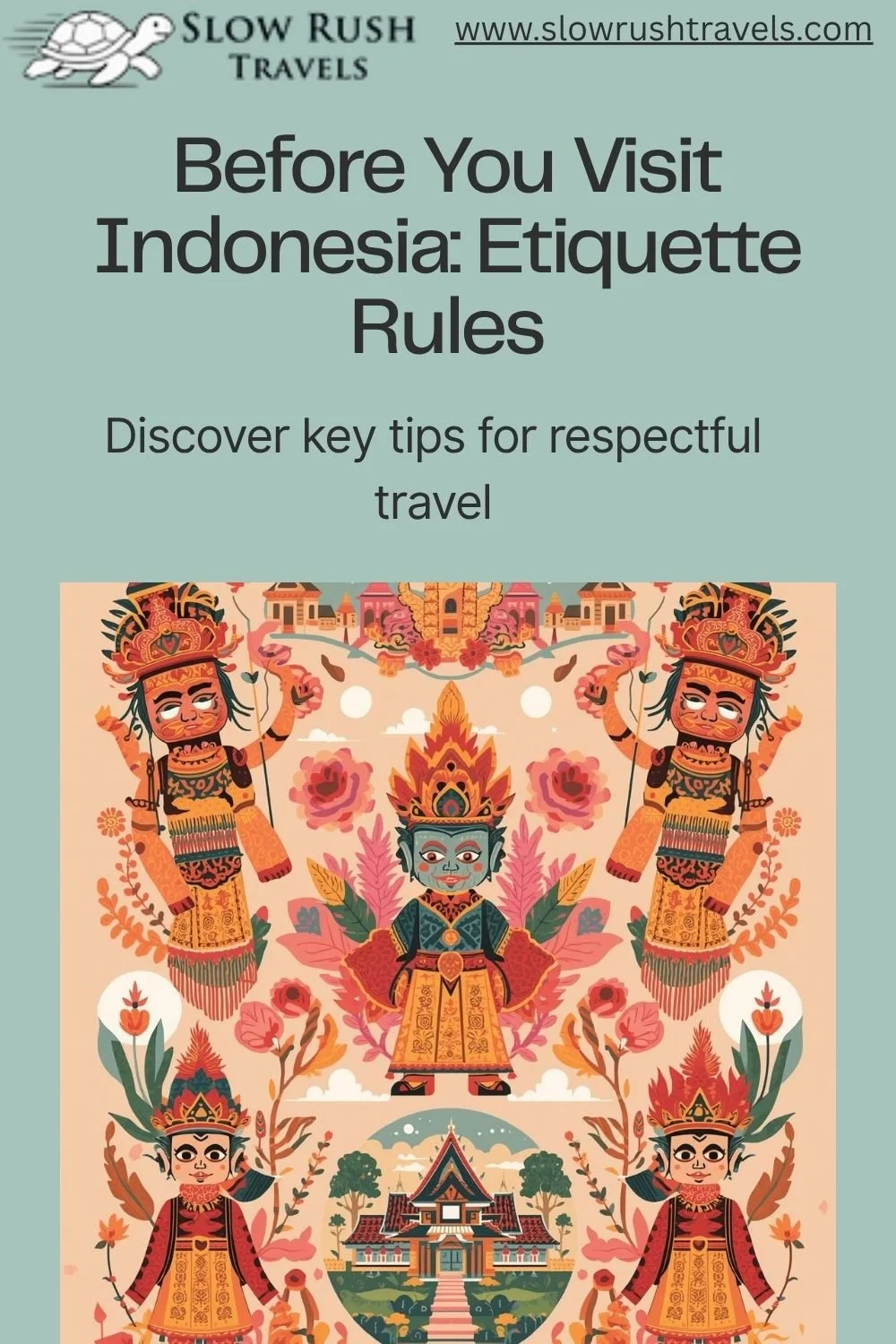Indonesia Etiquette Guide: How Not to Embarrass Yourself at the Dinner Table or Anywhere Else
The problem with etiquette in Indonesia is not that it is complicated. It changes depending on who you are standing in front of. One person greets you with a handshake, another presses their hands together like they are praying, and meanwhile you are frozen in the middle like a broken robot. Add in the fact that “yes” might mean “maybe,” gifts are never opened in front of you, and chewing loudly at dinner is basically social terrorism, and suddenly surviving dinner feels like surviving Parliament.
The Handshake That Wasn’t
The first time I went to Indonesia, I reached out for what I thought was a safe bet, a handshake. The women across from me did not move. Instead, she pressed his palms together near her chest, smiled, and dipped her head slightly. I froze midair, half-handshake, half-wave, looking like I was conducting an invisible orchestra.
This is the traveler’s puzzle in Indonesia, greetings are not universal. Sometimes you get a gentle handshake, sometimes a prayer-like gesture, sometimes just a nod. The safest move? Smile, wait, and follow the other person’s lead. Whatever you do, do not launch into a hug. That is a shortcut to awkwardness.
What’s in a Name?
Forget last names. Indonesians often do not use them. Cary gets “Mr. Cary” and never his last name. It is not sloppy, it is respect.
The rule is simple:
Use Pak for men and Bu for women.
In Bali, you might hear Kak if you look younger, regardless of gender.
When in doubt, add the honorific. You’ll sound more polite and conversations will flow better.
Think of it as verbal sunscreen. Use it liberally, and you will avoid unnecessary burns.
The Gift Giving
In Indonesia, showing up empty-handed to someone’s home feels like showing up without pants. Bring something small, such as fruit, or better yet, a box of chocolates. Presentation matters. A wrapped box looks thoughtful. A melted candy bar from your bag does not.
Do not expect your gift to be ripped open the second you hand it over. That would look like the host had been pacing the room all day thinking, finally, someone brought me something. Instead, your gift will be parked politely to the side and opened later. This is not a snub. It just means manners won.
At weddings, cash is king, but presentation matters. Never fling a fistful of rupiah like you are making it rain in a nightclub. The money must be tucked into an envelope, preferably with larger bills. Showing up with a stack of 5,000s feels less like generosity and more like petty revenge. And when you give it, slide that envelope over discreetly. No dramatic handoff. Flashing cash is bad form. It makes you look like you are flexing, which risks making the host lose face. And in Indonesia, face is everything.
One more thing: always pass gifts, money, or even business cards with both hands. One hand says “here.” Two hands say “this matters.”
Yes, No, Maybe
In Indonesia, “yes” does not always mean yes. Sometimes it means, “I hear you.” Sometimes it means, “I do not want to embarrass you by saying no.” Add in the famous smile, and you can walk away convinced you just signed a deal, when all you signed was a moment of polite confusion.
Travelers often misread the smile. It is not always happiness. Sometimes it’s a discomfort. Sometimes it is “I have no idea what you just said.”
Golden rule, if it matters, confirm twice. And if someone is silent, do not push. Silence is also an answer, just wrapped in politeness.
Hands Off (Mostly)
Public affection is where cultures collide. Holding hands is fine. A quick hug with family, maybe. But kissing your partner in public? Save it for later. Indonesia is a warm and friendly country, but intimacy stays behind closed doors.
If you are an older couple used to being openly affectionate, the rule of thumb is this: walk arm-in-arm if you like, but keep the kissing private. Nobody wants to be the couple remembered as “the ones who turned the market into a soap opera.”
The Quiet Table Rule
No matter if you are in Java, Sumatra, or Sulawesi, one rule holds steady, eat quietly. Keep your mouth closed, no slurping, no smacking, and for everyone’s sake, no talking with food still in your mouth.
Mitha grew up with this rule. Her family taught her early on that eating noisily was “kasar” or crude. And honestly, it makes sense. If you eat with your mouth open, there’s always the chance bits of food go flying, and nobody at the table signed up for that.
Of course, every culture has its own take. In other culture, slurping can mean you love the meal. In Indonesia, slurping means you are auditioning for a cow impression. At big family gatherings or ceremonial feasts, conversations often soften. Sometimes they stop completely, once plates are served. That silence is not awkward. It is respect, gratitude, and presence.
So if you are visiting, this is one of the easiest etiquette rules to follow, eat quietly. Let the food do the talking. Swallow first, then speak. Indonesians will notice. They will appreciate the effort. Start chewing like a cow and you will kill the vibe faster than you can say “selamat makan.”
Final Thought
Traveling in Indonesia is not about memorizing a list of do’s and don’ts. It’s about noticing how people move, eat, and greet, and then adapting. Smile, follow, respect, and above all, eat without turning dinner into a percussion concert.
If you found these etiquette tips helpful, subscribe to our stories. We will send you more practical, cultural, and occasionally embarrassing tales from our life on the road in Southeast Asia, no lectures, just real lessons learned the hard way.
More travel stories:
You can also use the search function below.





